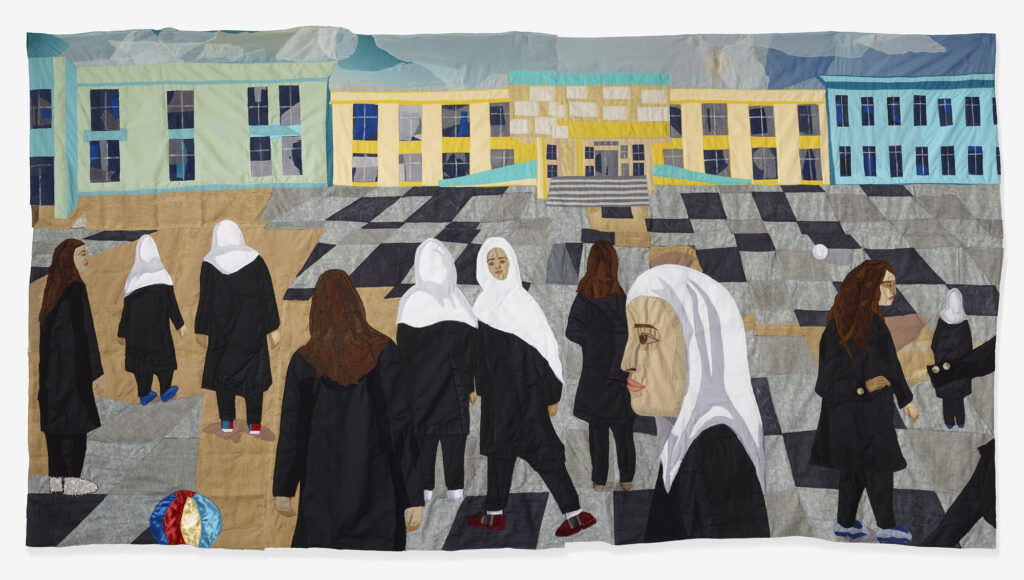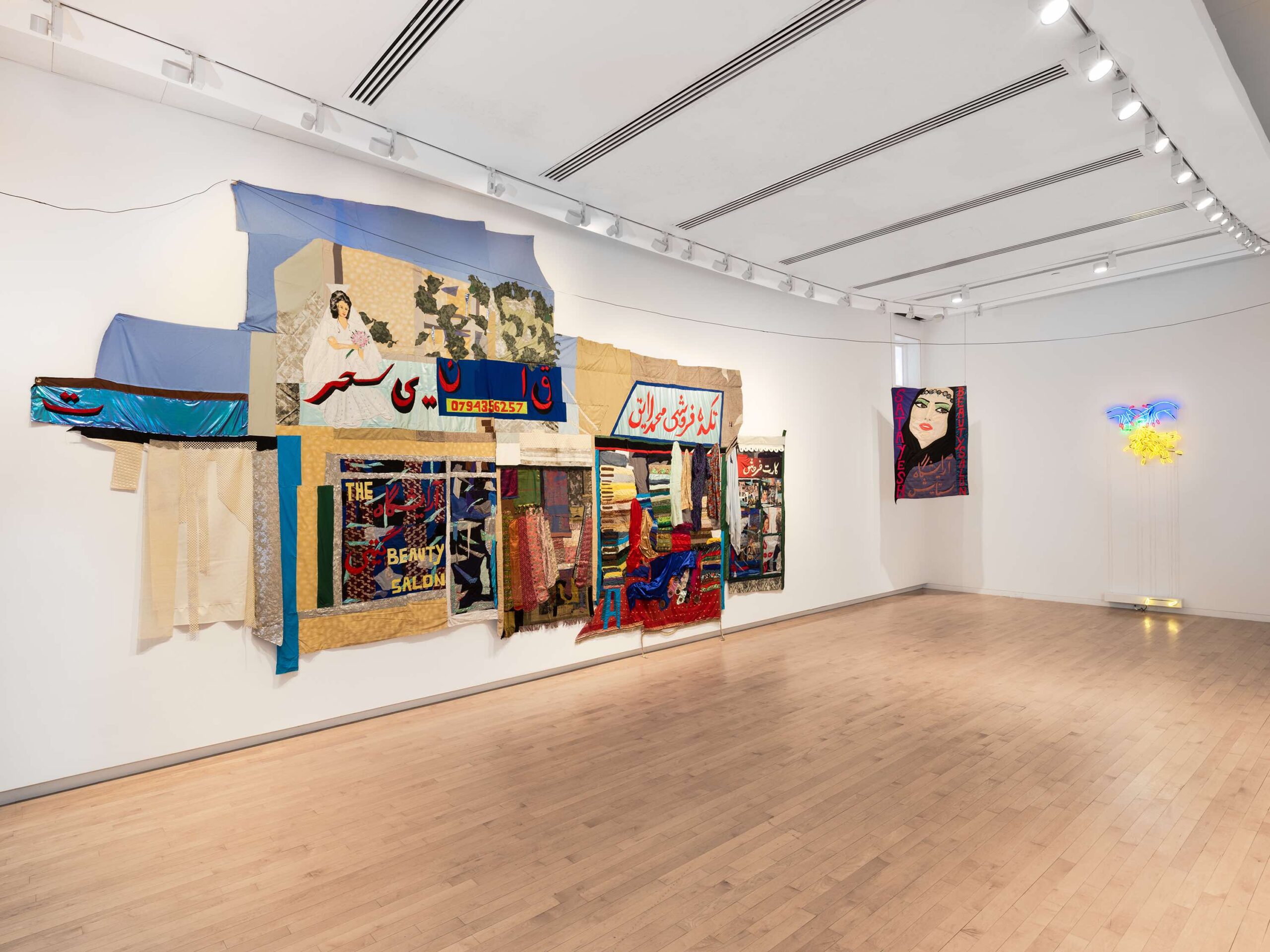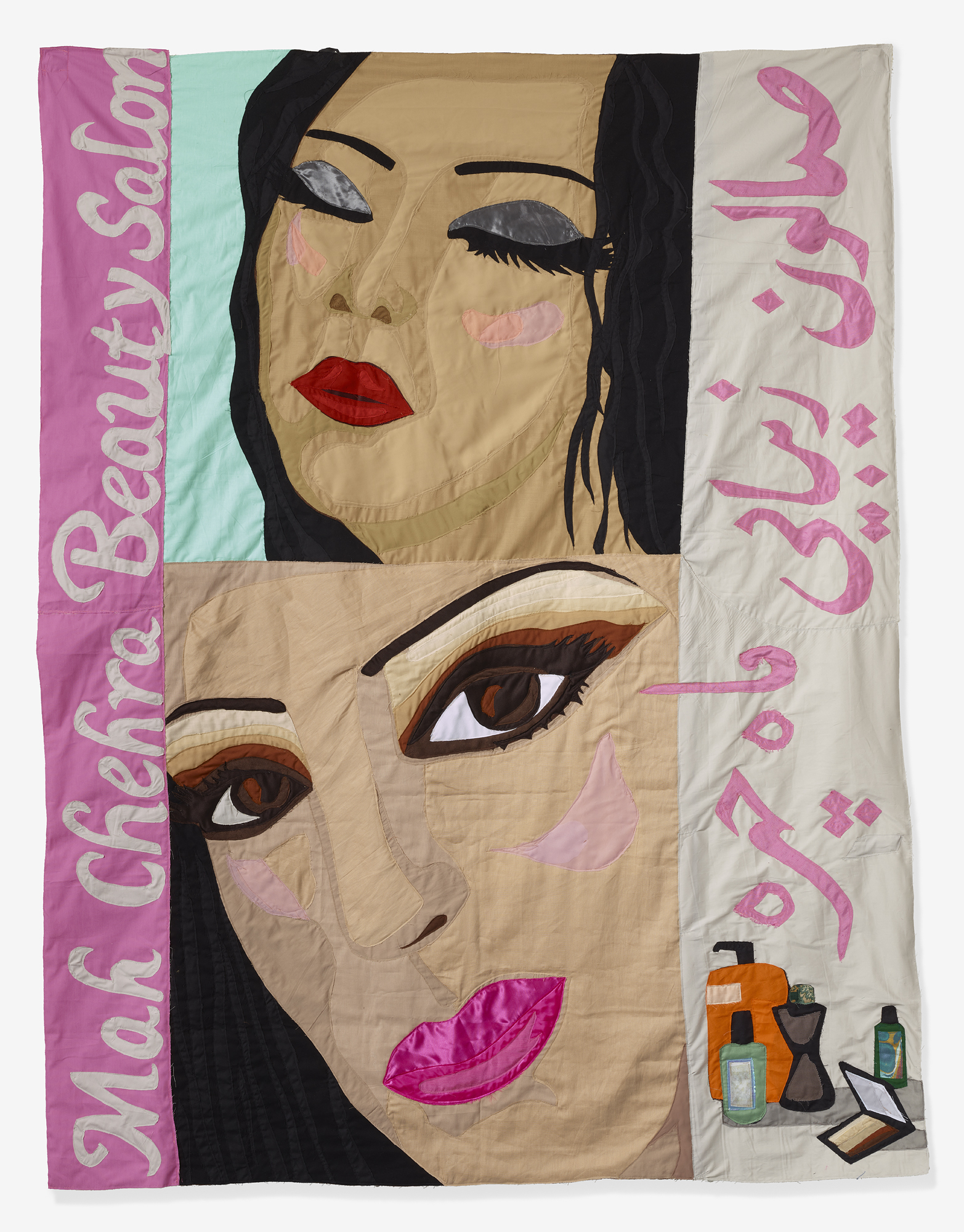
Hangama Amiri migrated with her family from their native Afghanistan to Canada after the Taliban seized power in the mid-1990s. Two years ago, as the Taliban was gaining ground once again, Amiri was asked to create works for a solo exhibition at the Aldrich Contemporary Art Museum in Ridgefield, Connecticut. She dedicated it to the past, present, and future of women’s lives in the country of her birth. “It reflects my childhood and also my present memories of being in Afghanistan,” she says, “really focusing on women’s participation in society and their entrepreneurship and the shorter phase of the peace that was in Afghanistan—how much fragile progress they had made in the past 20 years.” These works are now a part of the exhibition A Homage to Home, which runs through June 9.
Amiri sketches each of her compositions with colored pencils before cutting and transferring fabric (sourced from countries she’s been to, including Afghanistan) onto brown paper with pins. She then sews it all together. Her works depict Afghan women in public spaces like salons and fabric shops, and private spaces, such as in their homes, and as migrants. The exhibition draws attention to the obstacles young girls face in today’s Afghanistan, particularly with regard to education. Still, despite the Taliban’s resurgence, Amiri wants viewers of her work to “see a glimpse of hope, a glimpse of something that really was happening in Afghanistan,” when girls could go to school and women could vote.




